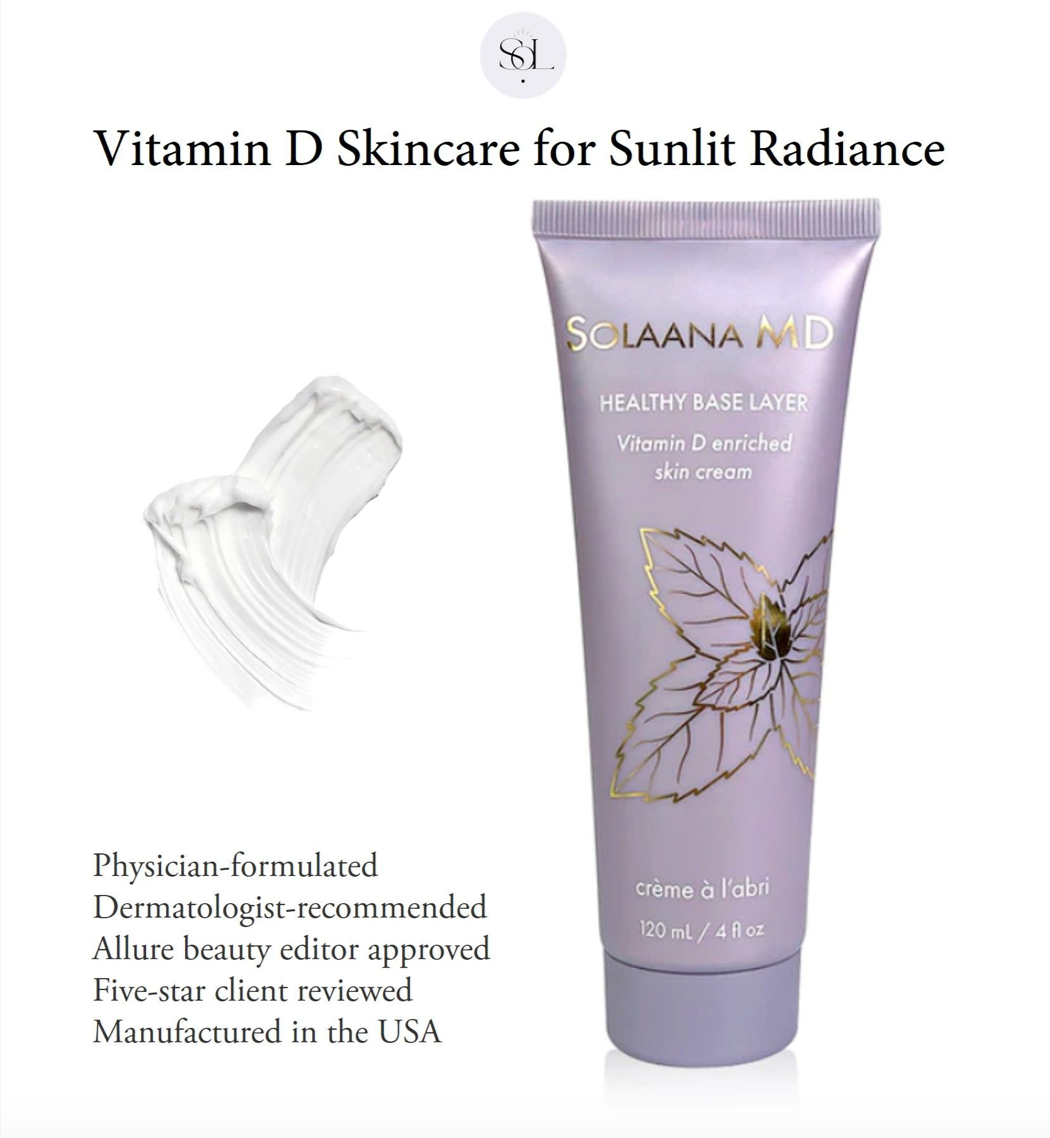Vitamin D is a fat-soluble vitamin that is required for normal biological functions. Our skin is a significant natural reservoir for its production, which is triggered by UV light. Vitamin D is produced in two forms: vitamin D3 in the skin and D2 and D3 in the gut. Inadequate sunlight exposure and a poor diet are the two most common causes of vitamin D deficiency.
A person's ability to synthesize vitamin D is also influenced by their skin type (color), sex, body mass index, physical activity, alcohol consumption, and vitamin D receptor polymorphisms (genetic variants). It's difficult to say how much vitamin D each person requires because it varies according to climate, season, skin color, age and diet, but the National Institutes of Health (NIH) recommends that the average (non-deficient) adult consume 600 International Units (IU) per day (or 15 mcg). You can get a lot of vitamin D from foods that have been made with vitamin D, like fortified milk, salmon, eggs, and mushrooms.
However, vitamin D deficiency is a global health problem that affects 1 billion people worldwide and affects virtually all our body systems including the skin. As it turns out, vitamin D deficiency is associated with impaired immune function, increased inflammation, and decreased insulin sensitivity. Poor immune function erodes the skin barrier, resulting in increased dryness and infection risk. Inflammatory conditions such as acne, eczema, and rosacea can be exacerbated by increased inflammation. While decreased insulin sensitivity is typically associated with diabetes (when severe enough), dysregulation of this pathway can result in worsened acne as well as glycosylated collagen (which makes collagen stiff and prematurely ages the skin by causing wrinkles). Let's read more about vitamin D skin care.
Vitamin D can be found in oral supplements for people who aren't getting enough of it, prescription topical forms for people with inflammatory conditions such as psoriasis, and even in some over-the-counter beauty products like moisturizers that you can buy at the store.
Vitamin D's skin benefits
Vitamin D's primary function is to maintain a calcium balance in our bodies, but it also has a variety of other functions, such as its role in skin health. Skin health is generally improved when your body has an adequate supply of vitamin D. The following are the primary ways in which vitamin D benefits the skin.

1. Decreases inflammation
To date, the most important practical application of topical Vitamin D in the skin is as a mild-to-moderate anti-inflammatory, which is used clinically as a cream to treat conditions such as psoriasis, eczema, rosacea, keratosis pilaris (KP), and vitiligo. Vitamin D suppresses exuberant inflammation, relieving symptoms associated with these conditions.
2. Protects the skin
Vitamin D acts as a steroid stimulating proliferation, regulating function, and possibly stabilizing genes within the nucleus of a cell. According to a 2012 study, vitamin D may be protective against cancer in general and skin cancer in particular.
3. Decreases environmental damage
Topical vitamin D can also act as an antioxidant, squelching harmful environmental oxidants (e.g. pollution) that contribute to premature aging.
4. Normalizes cell turnover
Vitamin D analogs have been shown to normalize cell turnover and prevent the buildup of dead cells on the skin's surface that contribute to the formation of psoriasis plaques. If you are using a prescription for topical vitamin D, follow your doctor's instructions.
While all forms of vitamin D (injectable, oral, topical, and sun-stimulated) are beneficial for skin health, a true deficiency is more easily treated with injectable or oral supplementation. If you think you may be vitamin D deficient, consult your physician.
Conclusion: Vitamin D is An Essential Nutrient for Skin Health and Overall Wellbeing
Vitamin D is essential for skin health and overall wellbeing. If you choose to use topical vitamin D for anti-aging, researchers have shown that combining it with other antioxidant vitamins (e.g. vitamin C and E) or retinoids can result in a "super" product that targets multiple anti-aging pathways to improve the health and appearance of your skin.
These statements have not been evaluated by the FDA. This product is not intended to treat, cure, or prevent any disease.








